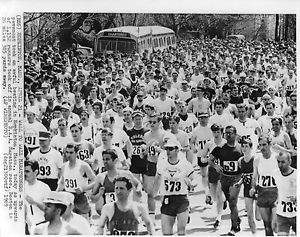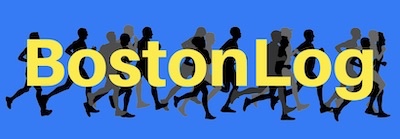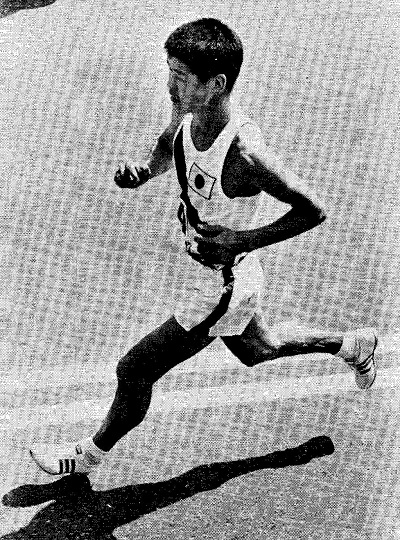April 21, 1969
Based on their 1-2-3-5-6 sweep the previous year, race experts had predicted another great showing for Team Japan. However, on a beautiful day for racing – variable clouds, temperatures in the 50s, and no wind to speak of – a single young Japanese named Yoshiaki Unetani outshown all his countrymen as well as the rest of the field. Unetani unleashed a superlative effort in improving the course record by nearly two minutes to 2:13:49.
At the outset, a record 1,150 runners gathered at Hopkinton green, a multitude which dismayed race officials. Despite the congestion, Unetani and two last minute Mexican entrants, Pablo Garrido and Alfredo Penaloza, broke fast. Although extended by his Mexican adversaries for 17 miles, the Japanese broke every check-point record enroute.
Unetani ran alone over the final nine miles as Garrido (2:17:30) and Penaloza (2:19:56) finished second and third. Unetani’s winning margin of 3:41 over Garrido, was the biggest since the 1958 event. Without the Mexican late entries, Unetani would have captured the race by almost seven minutes—Ron Daws of Minneapolis being fourth, 2:20:23.
Three women finished unofficially, led by Sara Mae Berman from Cambridge in 3:22:46.
 With the exception of six years when the date fell on a Sunday, the first 72 Boston Marathons were all run on April 19th, the traditional Patriots’ Day holiday commemorating the start of the Revolutionary War. In 1969, the holiday was officially standardized as the third Monday in April, leaving Sunday (0) and Saturday (9) as the days hosting the fewest marathons.
With the exception of six years when the date fell on a Sunday, the first 72 Boston Marathons were all run on April 19th, the traditional Patriots’ Day holiday commemorating the start of the Revolutionary War. In 1969, the holiday was officially standardized as the third Monday in April, leaving Sunday (0) and Saturday (9) as the days hosting the fewest marathons.
1969 was the final year the race would be open to any and all runners. In the coming years, race officials would establish a qualifying time for entry into Boston.
1. Yoshiaki Unetani — Japan;
2. Pablo Garrido — Mexico;
3. Alfredo Penaloza — Mexico.

